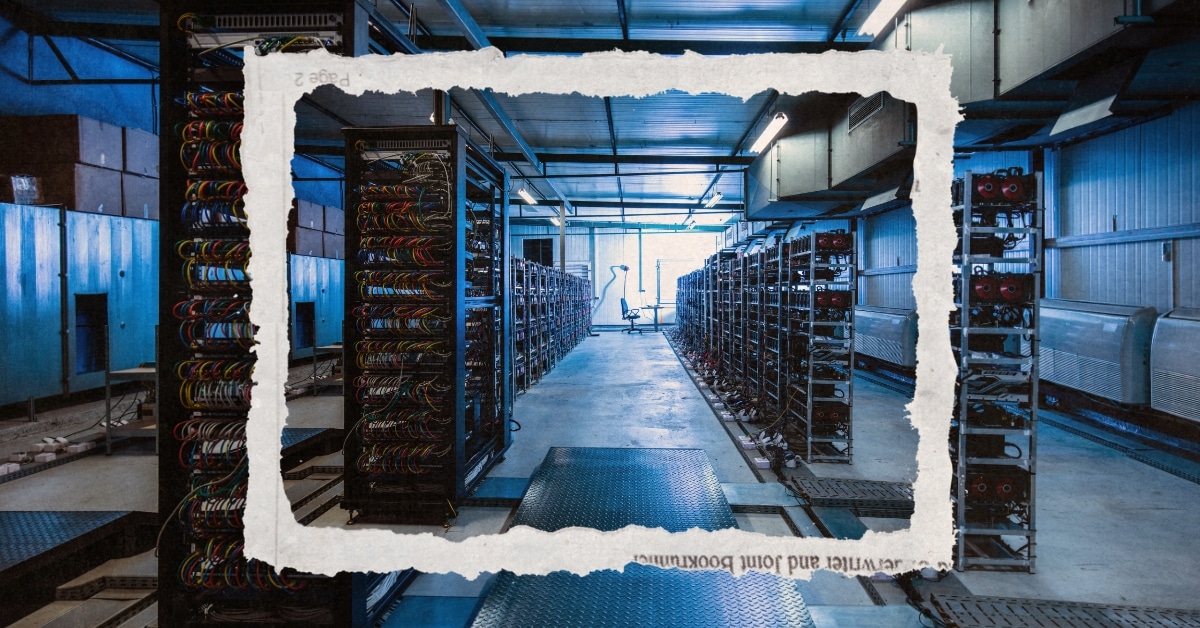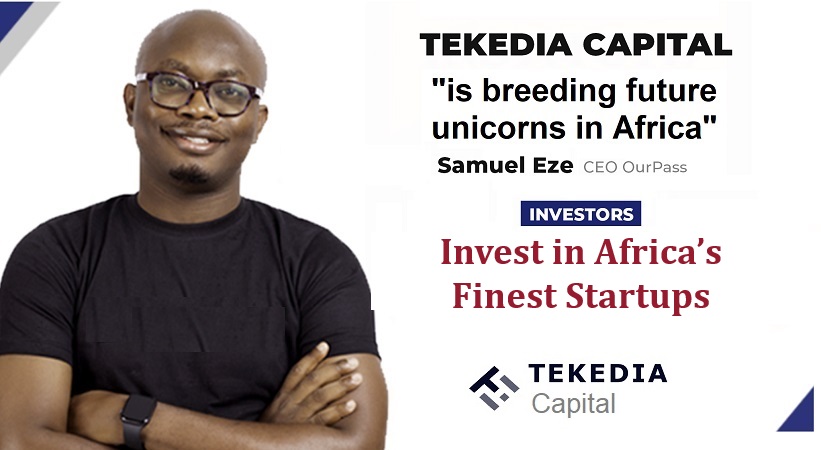News
Wealthy Industry Donors Fuel Trump’s Conversion to Cryptocurrency

Donald Trump called cryptocurrency “a scam” and a “disaster waiting to happen” during his time in office.
In the official Republican Party program, curated by Trump last week, the tone was different.
“Republicans will end Democrats’ illegal and anti-American crackdown on cryptocurrencies and oppose the creation of a central bank digital currency,” read the platformwhich will be formally adopted Monday at the Republican National Convention in Milwaukee. “We will defend the right to mine Bitcoin and ensure every American has the right to self-custody of their digital assets and transact free from government surveillance and control.”
The about-face comes after an aggressive campaign by wealthy cryptocurrency executives who have lavishly funded Trump’s campaign with donations, spent money on events at Mar-a-Lago, promised to hold fundraisers for his 2024 campaign and pressured him with harsh criticism of President Biden and his administration, according to eight people familiar with the matter, who spoke on condition of anonymity to describe private conversations and fundraisers.
As he sought to secure big checks from some of the country’s wealthiest Republicans, Trump frequently promised donors at fundraisers that he would enact policies they would like, from cutting corporate taxes to approving their oil permits throw pro-palestinian demonstrators abroad.
In recent months, Trump advisers say the former president has held numerous meetings about cryptocurrency with donors and potential donors. His interest in cryptocurrency, a digital currency not tied to any central bank, was piqued when a group of donors came to Mar-a-Lago to say they would support his campaign and complained about Biden administration officials, including SEC Chairman Gary Gensler.
Trump recently attended another large fundraising event in California, which featured cryptocurrency industry executives, according to people in attendance. Trump vowed to support their “innovation,” according to one attendee.
Trump and his campaign have met repeatedly with David Bailey, a cryptocurrency entrepreneur who has promised to host a $15 million fundraiser for Trump in Nashville by the end of the month, according to people familiar with the matter. Trump is also expected to headline a cryptocurrency conference, where he has been won over by the idea of a large crowd and celebrity.
According to people familiar with the meeting, one of the private meetings between Bailey and Trump took place at Trump Tower in New York last spring, during the former president’s criminal trial for corporate fraud.
His campaign announced it would accept cryptocurrency donations a few days after that meeting. Crypto executives and supporters also held several events at his Florida club, according to people who attended.
Bailey also pitched Trump senior adviser Vince Haley on cryptocurrency ideas at a dinner last month, sources said, at the same meeting where he pitched the Tennessee fundraiser.
Haley then drafted the platform that had supportive language about cryptocurrency, the people said. It was a topic the party had never touched on before and surprised some longtime party members, who wondered where the language came from. It passed overwhelmingly in Milwaukee last week and has received little attention.
A Trump spokesperson declined to answer questions about donors supporting Trump’s push and his cryptocurrency pushback.
“Cryptocurrency innovators and others in the tech sector are under attack from Biden and Democrats,” Trump campaign spokesman Brian Hughes said. “As Biden stifles innovation with more regulation and higher taxes, President Trump stands ready to encourage American leadership in this and other emerging technologies.”
Advisers said Trump knew very little about cryptocurrencies until donors approached him, and had long harbored negative feelings about them, viewing them as counterfeit money.
“I am not a fan of Bitcoin and other cryptocurrencies, which are not money and whose value is highly volatile and based on nothing,” he wrote on Twitter in 2019. “Unregulated cryptocurrencies can facilitate illicit behavior, including drug trafficking and other illegal activities.”
A top adviser to Trump’s 2020 campaign said there was never any talk of focusing on cryptocurrencies in the campaign or including them in the party’s official platform because Trump was so against it.
“He thought it was … strange and didn’t want anything to do with it,” the official said. “He had no idea what it was and wasn’t interested in finding out.”
A second adviser who spent hundreds of hours with Trump said, “I’ve only talked to him about it once or twice, and he’s never blew my mind.”
Two donors described speaking privately with Trump when he promised to be helpful on the issue, but did not appear to know the details of cryptocurrency. Trump’s thinking, according to people who spoke to him, is that there are cryptocurrency supporters who can help him win back the presidency, and there are potential donors to his campaign who like the currency and want to use it.
“Trump understands that the Biden administration has mishandled cryptocurrency policy and misjudged its importance,” said Trump donor and crypto executive Kyle Samani, who attended the fundraiser in California. “A lot of cryptocurrency supporters are single-issue voters, have money, and are looking for a candidate to support. He and his team recognize all of that and are capitalizing on it.”
Samani, Bailey and other donors said the industry was frustrated with the Biden administration’s regulatory actions. Others in the industry, including some who dislike Trump, said Gensler had been too aggressive and that they needed to craft sensible regulations for a largely unregulated industry.
According to the agency’s website, the SEC has filed more than 80 cases against cryptocurrency industry figures during the Biden administration. The allegations have often included defrauding customers, misrepresenting assets, or conducting unregistered cryptocurrency offerings.
“The SEC’s Office of Investor Education and Advocacy continues to urge investors to be cautious when considering an investment involving cryptocurrency securities,” the agency warns on its website. “Investments in cryptocurrency securities can be exceptionally volatile and speculative, and the platforms where investors buy, sell, borrow, or lend these securities may lack important investor protections.”
A Gensler spokeswoman declined to comment on the administration’s regulatory actions. A Biden campaign spokesman, Ammar Moussa, declined to comment. Senior White House officials have met with cryptocurrency executives in recent days, where they’ve heard a series of complaints.
Tim O’Brien, Trump’s longtime biographer, said Trump’s adoption of cryptocurrencies is not a surprise.
“Anyone who has ever walked into Trump’s office and offered him an easy way to make money has gotten his attention. They’ve gone to the races,” O’Brien said. “He’s always been an opportunist when it comes to politics.”
The industry has jumped at the chance to shape Trump’s thinking. Cryptocurrency executives have flooded Washington with contributions in recent years, according to OpenSecrets, a group that tracks campaign contributions. The industry is responsible for about $121 million in contributions so far this election cycle, according to the group.
More contributions went to Republicans than Democrats this cycle, according to an analysis provided by the group. It’s the first time Republicans have benefited financially from industry donations, the group’s data shows.
Earlier this year in the hills of San Francisco, several cryptocurrency executives attended a fundraiser at the home of donor David Sacks, according to an attendee sheet reviewed by The Washington Post. Cameron Winklevoss and his twin brother Tyler, famous cryptocurrency investors, both topped Trump’s campaign donations, a campaign official said.
Numerous questions about cryptocurrency were asked at the fundraiser, and Trump gave supportive, if not substantive, answers, attendees said. He also expressed support for cryptocurrency in his prepared opening remarks.
“It was probably 20 percent of the fundraiser,” one attendee said.
Donors were pleased with their access to Trump’s inner circle.
“We’re really excited about what the Trump campaign has done publicly. We’re excited to see what they do next,” Bailey said.
Greg Xethalis, a lawyer for cryptocurrency firm Multicoin Capital, said he was pleased the party’s platform included such supportive language. Xethalis said he never expected his firm to be so politically involved.
“It’s pretty strong and good language. It sets the right broad policy goals and can be followed up with good, coherent legislative and regulatory frameworks,” Xethalis said. “Cryptocurrency has become more of a political issue than we necessarily thought it would be… The Republican Party saw an opportunity here.”
Ashley Parker and Yvonne Wingett-Sanchez contributed to this report.
News
US Cryptocurrency Rules Delayed by ‘Never-Ending’ Lawsuits

Ripple CEO says cryptocurrency industry still seeking regulatory clarity from US
Speaking to Bloomberg News on Wednesday (July 17), Author: Brad Garlinghouse he said America is behind behind other countries which have already adopted cryptocurrency regulations.
“What we’re seeing, where it’s the UK, Japan, Singapore… even the European Union, more than two dozen countries have come together to provide a framework for cryptocurrency regulation,” Garlinghouse said.
“It’s frustrating that we as a country can’t get that regulatory framework in place. And instead, we have this never-ending lawsuit coming from the SEC that doesn’t really address the problem.”
Ripple has been the target of some of these legal disputes. Securities and Exchange Commission (SEC) sued the company in 2020, accusing it of conducting a $1.3 billion operation offering of unregistered securities tied to its XRP token.
However, last year a judge ruled that only Ripple’s institutional sales of XRP, not retail sales, violated the law, a decision widely seen as a victory for the cryptocurrency industry.
As PYMNTS noted at the time, that ruling has “far-reaching repercussions impact across the digital asset ecosystem, which has long maintained that its tokens do not represent securities contracts.”
However, Garlinghouse told Bloomberg on Wednesday that the company cannot wage multimillion-dollar legal battles over each token.
He spoke to the news agency from the Republican National Convention in Milwaukee, where the party is backing the candidacies of former President Donald Trump and Ohio Sen. J.D. Vance, both of whom are considered pro-cryptocurrency.
But Garlinghouse argued that cryptocurrencies “should not be a partisan issue,” and noted that he had recently attended a conference in Washington that included Democrats, including White House officials.
“I think they were there, listening to the industry… it was refreshing to start having that conversation,” she said.
President Joe Biden earlier this year he vetoed a measure which would have ended the SEC’s special rules for crypto-asset custodians. This legislation was supported by both the digital asset industry and the banking industry.
Ripple early this year donated $25 million to the cryptocurrency industry’s super PAC Fair Smoothiewith Garlinghouse stating at the time that such donations would continue every year, as long as the industry had its detractors.
Second Open SecretsWhich monitor spending For campaigns, the PAC has spent $13.4 million this year, much of it to help defeat Rep. Katie Porter’s (D-Calif.) U.S. Senate campaign.
News
The Future of Cybersecurity in the Cryptocurrency Industry

The cryptocurrency space has had a tumultuous journey, with its fair share of ups and downs. As we look to the future, one area that remains a constant focus is cybersecurity. The digital nature of cryptocurrencies makes them inherently vulnerable to cyber threats, and as the industry evolves, so does the landscape of potential risks.
In 2022, the cryptocurrency market faced significant challenges, with over $2 trillion in market value lost. This event served as a wake-up call for the industry, highlighting the need for robust cybersecurity measures. The future of cryptocurrency security is expected to see a shift towards more regulated and established institutions taking the reins of crypto technology and blockchain infrastructure.
The decentralized nature of cryptocurrencies offers numerous benefits, such as transparency and financial inclusion. However, it also introduces unique security challenges. The risk landscape is filled with threats such as hacking, phishing, ransomware attacks, malware, and social engineering. These threats not only lead to financial losses, but also damage the reputation and trust within the cryptocurrency ecosystem.
Mini-MBA Tekedia edition 15 ((September 9 – December 7, 2024) started recordings; Register today for discounts reserved for early bird customers.
Tekedia AI in Business Masterclass Opens registrations Here.
Join the Tekedia Capital Syndicate and IInvest in Africa’s best startups Here.
The decentralized nature of cryptocurrencies offers many benefits, but it also presents unique security challenges. Cyber risks such as hacking, phishing, and ransomware pose threats to the integrity of digital assets. The infrastructure that supports cryptocurrencies is not immune to vulnerabilities, including smart contract flaws and exchange hacks.
To address these vulnerabilities, the infrastructure that supports cryptocurrencies must be strengthened. Smart contract vulnerabilities, exchange hacks, wallet breaches, and flaws in the underlying blockchain technology are significant concerns that must be addressed to ensure the security and integrity of digital assets.
As cybercriminal tactics and techniques become more sophisticated, the cryptocurrency industry must stay ahead of the curve. The future will likely see more targeted attacks, exploiting weaknesses in infrastructure, networks, and human factors. This requires a proactive and multifaceted approach to cybersecurity.
To mitigate these risks, several measures must be adopted:
Strengthening security measures: Developers, exchanges, and wallet providers must improve security protocols, use strong encryption, implement multi-factor authentication, and conduct regular security audits.
Education and awareness: Users should be educated on best practices for protecting their digital assets, including using strong passwords, recognizing phishing attempts, and using hardware wallets for secure storage.
Looking ahead, the cryptocurrency industry is expected to see an increased focus on robust security measures. Blockchain projects and exchanges are likely to invest in advanced encryption techniques and decentralized storage solutions to protect user assets. The future impact of cyber risk on cryptocurrencies will depend on the collective efforts of stakeholders to address vulnerabilities and strengthen security measures.
Collective efforts by stakeholders in the cryptocurrency space are crucial to address vulnerabilities and strengthen security measures. While challenges persist, advances in cybersecurity technologies and practices offer hope for a more secure and resilient cryptocurrency ecosystem.
The future of cybersecurity in the cryptocurrency industry depends on finding a balance between innovation and regulation. It requires a collaborative effort from all parties involved, from developers to end users, to create a secure environment that fosters trust and growth in the industry. As we move forward, it is critical that lessons learned from past events guide the development of stronger security measures, ensuring the longevity and stability of cryptocurrencies as a vital part of the modern economic toolkit.
Like this:
Like Loading…
News
Bullish XRP and RLBK price predictions rise, outpacing the broader cryptocurrency market, prompting Shiba Inu holders to switch!

Bitcoin’s one-week surge from $60,000 has pushed other cryptocurrencies into an uptrend. However, for many altcoins, this trend has been temporary. Altcoins such as XRP and Shiba Inu (SHIB) have experienced price drops. However, Rollblock, a new altcoin on the Ethereum blockchain, has thrived during this period, attracting thousands of investors looking for long-term growth.
XRP’s Nearly 30% Growth Over Last Week Drops as Selling Pressure Increases
XRP is seeing further price decline as Ripple investors withdraw their profits from the token. The surge in XRP’s price to $0.64 in the past week has provided investors with a perfect opportunity to increase their returns in the short term. With the ongoing sell-off in XRP, XRP has jumped over 8% in the past day and is now trading at $0.59. However, analysts tracking XRP indicators predict that XRP could still extend its gains by over 30% in the coming weeks.
Shiba Inu (SHIB) marks its third consecutive day of losses
Shiba Inu (SHIB) is in a period of adjustment after a week of strong gains. In the last 24 hours, SHIB has seen a jump of over 7%, reflecting a natural market fluctuation. Analysts are observing a death cross on the Shiba Inu chart, which historically signals the potential for future opportunities as the market stabilizes. As investors explore new possibilities, some are diversifying into promising altcoins like Rollblock (RBLK) to strategically rebalance their portfolios and capitalize on the emerging trend.
Rollblock (RBLK) Up Another 7% as New Investors Join Pre-Sale
Rollblock (RBLK) has taken the cryptocurrency market by storm, having attracted investors from more popular altcoins like Shiba Inu (SHIB) and XRP. Rollblock’s growth is attributed to its utility in the $450 billion global gaming industry.
Rollblock aims to use blockchain technology to bridge the gap between centralized and decentralized gambling. With blockchain technology, Rollblock secures every transaction in its online casino, providing transparency and convenience to millions of players who are uncomfortable placing bets on other iGaming platforms.
This innovative use of blockchain technology in the industry has grown Rollblock to over 4,000 new users in less than two months. With plans to add sports betting, this number is expected to grow exponentially in Q3.
Rollblock uses a revenue sharing model that splits up to 30% of its casino’s weekly profits with token holders. This happens after Rollblock buys back $RBLK from the open market and uses half of it for rewards. The other half is burned to increase the price of $RBLK.
Rollblock price has seen four increases in the past month with $RBLK tokens now selling for $0.017. Analysts predict that at the current growth rate, Rollblock could increase by over 800% before the presale ends. For investors looking for a long-term token with growth potential, phase four is the best time to buy Rollblock before its price skyrockets!
Discover the exciting Rollblock (RBLK) pre-sale opportunities now!
Website:https://Rollblockpresale.io/
Social: https://linktr.ee/Rollblockcasino
No spam, no lies, just insights. You can unsubscribe at any time.
News
Texas Crypto Miners Turn to AI as Crypto Declines

As cryptocurrency mining becomes less profitable, Texas cryptocurrency mining companies are switching to supporting artificial intelligence companies.
Bitcoin miners, with their sprawling data centers and access to significant energy resources, are ideally suited for computationally intensive AI operations, and as cryptocurrency mining becomes less profitable, companies see this shift as a logical answer to their problems.
On Thursday, Houston-based Lancium and Denver-based Crusoe Energy Systems announced a multibillion-dollar deal to build a 200-megawatt data center near the West Texas city of Abilene to support advanced artificial intelligence applications such as medical research and aircraft design, CNBC reported. The plant represents the first phase of a larger 1.2 gigawatt project.
Lancium and Crusoe’s move into AI mirrors a broader trend among bitcoin miners. The combined market capitalization of the top U.S.-listed bitcoin miners hit a record $22.8 billion in June. Companies like Bit Digital and Hut 8 are diversifying into AI, with Bit Digital securing a $92 million annual revenue deal to supply Nvidia GPUs and Hut 8 raising $150 million to expand its AI data center.
But the growing popularity of these operations also presents challenges, particularly for the Texas power grid. Last month, the Electric Reliability Council of Texas announced that the state is expected to nearly double its energy production by 2030 to meet the high energy demands of data centers and cryptocurrency operations.
Lieutenant Governor Dan Patrick expressed concern about the projections.
“Cryptocurrency miners and data centers will account for more than 50% of the additional growth. We need to take a close look at these two sectors,” He wrote on Twitter/X. “They produce very few jobs compared to the incredible demands they place on our network. Cryptocurrency miners could actually make more money selling electricity to the network than they do from their cryptocurrency mining operations.”
Analysts predict significant growth in data center power capacity, which is expected to account for up to 9% of U.S. electricity consumption by 2030.
The operations also pose challenges for nearby cities. Earlier this month, TIME reported that a crypto-mining facility was seriously compromising the health of residents in the city of Granbury. TIME reported more than 40 people with serious health problems, including cardiovascular disease, high blood pressure and hearing loss. At least 10 of the residents needed to go to the emergency room or an urgent care facility.
The disturbances were caused by the extreme noise generated by the crypto-mining facility’s fans, which are used to keep the machines cool. While the proposed data center in Abilene would use liquid cooling systems, it’s still unclear whether the facility’s operations would pose a health risk to local residents.
-

 Nfts1 year ago
Nfts1 year agoShardLab Launches ZK-Based Tool for Digital Identity and NFT Vouchers
-

 News1 year ago
News1 year agoWallet recovery firms are abuzz as stranded cryptocurrency investors panic in the bitcoin boom
-

 Bitcoin1 year ago
Bitcoin1 year agoBitcoin, Ethereum, Solana and Cryptocurrency Markets Look Ready to ‘Send’ as Stars Align, According to Investor Chris Burniske
-

 Altcoins1 year ago
Altcoins1 year agoThree Altcoins Poised for Significant Growth in 2024: ETFS, OP, BLAST
-

 Altcoins1 year ago
Altcoins1 year agoAccumulate these altcoins now for maximum gains
-

 Nfts1 year ago
Nfts1 year agoOG Crypto Artist Trevor Jones Unveils Groundbreaking Collection of Ordinals | NFT CULTURE | NFT News | Web3 Culture
-

 Bitcoin1 year ago
Bitcoin1 year agoBillionaires are selling Nvidia stock and buying an index fund that could rise as much as 5,655%, according to some Wall Street analysts
-

 Videos9 months ago
Videos9 months agoKamala just won the boner! [Bad For Crypto]
-

 Videos1 year ago
Videos1 year agoLIVE FOMC 🚨 Could be CATASTROPHIC for Altcoins!
-

 News1 year ago
News1 year agoA Guide for Newcomers & Beginners – Forbes Advisor
-

 Videos1 year ago
Videos1 year agoAttention: a historically significant BITCOIN signal has just appeared!
-

 Videos1 year ago
Videos1 year agoSTOCK MARKET FUD! ⚠️ [Why This Is GREAT For Bitcoin Traders!]







